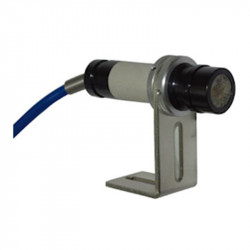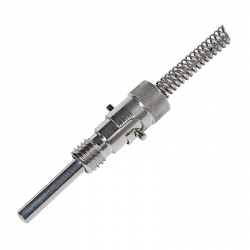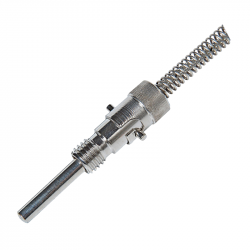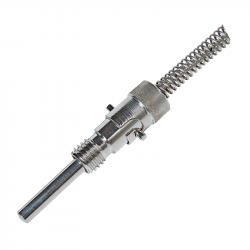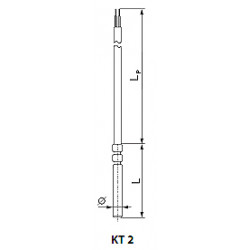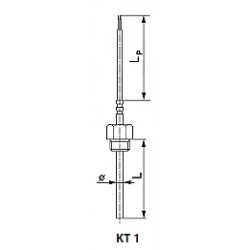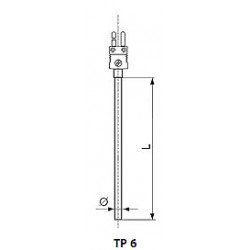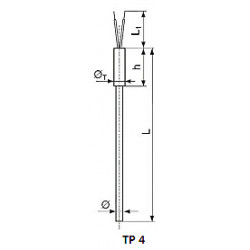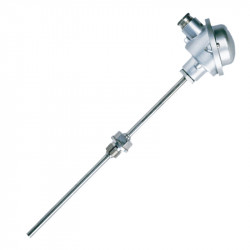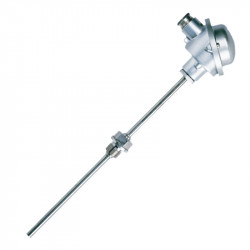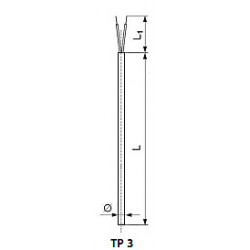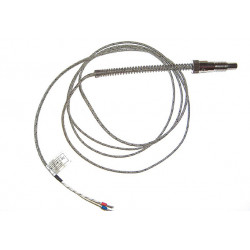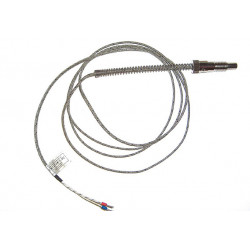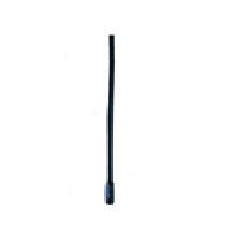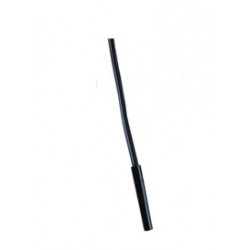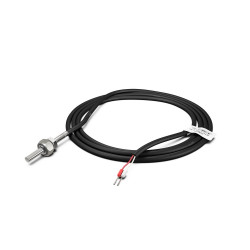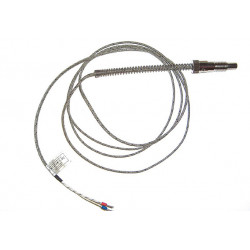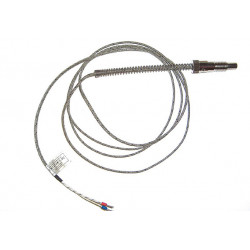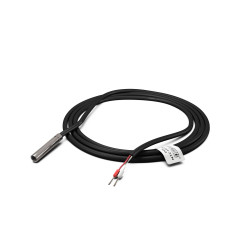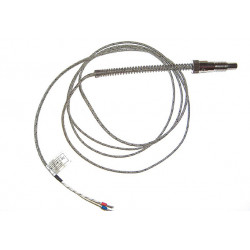Термопары
Категории
- Безконтактные датчики температуры для подвижных объектов - C015
- Термоэлектрический датчик температуры со сменной защитной измерительной вставкой в металлической защитной трубке TD 1
- Термоэлектрический датчик температуры со сменной измерительной вставкой в защитной металлической трубке TP 1
- Термоэлектрический датчик температуры со сменной защитной измерительной вставкой в металлической защитной трубке TD 2
- Термоэлектрический датчик температуры - трехточечное измерение. тип: tw
- Датчик температуры термопары со свободными концами. тип: tp 3
- Датчик температуры термопарный с гильзой. тип: TP 4
- Датчик температуры рубашки термоэлектрический со штекером. тип: TP 6
- Термоэлектрический или резистивный датчик температуры. тип: кт1
- Термоэлектрический или резистивный датчик температуры. тип: кт2
- Термопара прямая (J, K, N) - TC-07
- Термопара в оболочке (J, K, N) - TC-42
- Термопара с резьбовым зажимом (J) - ETB
Мы предлагаем широкий ассортимент термопар для промышленного и автоматического применения
Измерение температуры – одна из важнейших задач в автоматизации – в промышленных условиях чаще всего используются термопары и сопротивлительные датчики температуры (RTD).
Термопары – применение
Термопары, также называемые термоэлектрическими датчиками температуры, являются одним из самых популярных решений для измерения температуры в промышленности. Основные области применения включают лаборатории, транспорт, измерительное и контрольно-измерительное оборудование, системы сбора данных, многоканальные автоматические устройства, сканеры, тепловизионные системы и военное оборудование.
Преимущества термопар:
- низкая стоимость;
- простая, прочная и надежная конструкция;
- предсказуемые выходные напряжения;
- возможность использования в химически агрессивных средах;
- широкий диапазон измеряемых температур от -100°C до более 2500°C;
- высокая точность измерений.
Какие бывают типы термопар?
Для изготовления термопар используются несколько типов металлических сплавов, каждый из которых предназначен для разных применений.
Тип E – сплавы, подходящие для температур от -200°C до 871°C. Используются в атмосферах от вакуума до слабоокисляющей и при очень низких температурах.
Тип J – сплавы, подходящие для более низких температур (0°C до 600°C). Используются в химической промышленности (производство пластмасс).
Тип K – промышленный стандарт для температур до 1250°C.
Тип T – сплавы, подходящие для температур от -200°C до 350°C. Широко используются в пищевой промышленности.
Также смотрите датчики температуры и влажности, которые есть в нашем широком ассортименте!




